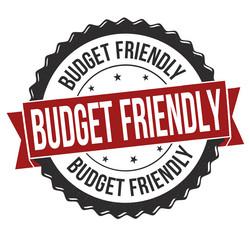Let’s face it—nobody enjoys spending their hard-earned money on medical bills. Yet, many of us overlook the simple, everyday practices that can help keep our health in check and our wallets fuller. In this article, we’ll dive into the world of preventive health practices that not only boost your well-being but also save you a pretty penny over time. From easy dietary changes to regular check-ups, these tips are all about making smart, effective choices that pay off in the long run. So, grab a cup of tea, get comfortable, and let’s explore how taking care of yourself today can lead to a healthier, wealthier tomorrow!
Eating Right without Breaking the Bank
Buying nutritious food doesn’t have to empty your wallet. Buy in bulk for staples like rice, beans, and oats, which often come at a reduced price. Frozen vegetables are another great option—they’re usually cheaper than fresh and last longer. Shopping at farmers’ markets and local stores can sometimes score you better deals, plus the produce is often fresher.
Planning is key to eating well on a budget. Meal prepping for the week can help you avoid the temptation of pricey takeout. Cook larger portions and store individual servings in containers to make it easier to grab and go. Keep an eye out for sales and coupons; often, you can find discounts on healthy foods. Making a shopping list and sticking to it can prevent impulse buys, saving you money in the long run.
| Tip | Action |
|---|---|
| Buy In Bulk | Get staples like rice and oats at wholesale prices. |
| Frozen Vegetables | Cheaper than fresh and still nutritious. |
| Meal Prep | Cook large batches and store in portions. |
| Shop Sales | Use coupons and look for discounts on healthy foods. |

Staying Active: Low-Cost Fitness Tips
Getting fit doesn’t have to break the bank. There are plenty of wallet-friendly ways to keep moving. For starters, you can take advantage of free resources like local parks and community centers. Whether it’s jogging, walking, or even just playing catch, there are numerous activities that won’t cost you a dime. Additionally, consider exploring online fitness classes. Platforms like YouTube offer a wealth of free workout videos ranging from yoga to high-intensity training, perfect for individuals of all fitness levels.
Another great way to stay active on a budget is to make use of items you already have at home. For instance, household chores can double as a workout. Vacuuming, gardening, and even scrubbing the floors are all activities that get your heart rate up. You can also create your own exercise equipment using everyday items. Here are a few ideas:
- Water bottles as weights
- Chairs for tricep dips
- Towels for resistance training
| Household Item | Exercise Use |
|---|---|
| Water Bottles | Weights |
| Chairs | Tricep Dips |
| Towels | Resistance Training |

Budget-Friendly Stress Management Techniques
Looking after your mental health doesn’t need to break the bank! Here are some wallet-friendly ways to keep stress at bay:
- Mindfulness and Meditation: Apps like Calm or Headspace offer free trials and low-cost subscriptions to help guide your daily practice.
- Exercise: Physical activity is a proven stress-buster. You don’t need a pricey gym membership; try free YouTube workout videos or take a walk in your local park.
- Hobbies: Engage in low-cost hobbies like reading, gardening, or painting. They can be both relaxing and fulfilling.
- Social Connections: Hanging out with friends or family can uplift your mood. Organize a budget-friendly game night or picnic.
Check out this quick comparison of free vs paid stress management methods:
| Method | Free | Paid |
|---|---|---|
| Meditation | Free Apps, YouTube | Calm, Headspace |
| Exercise | YouTube Workouts, Walking | Gym Membership |
| Hobbies | Reading, Gardening | Art Classes, Specialized Tools |
| Social Activities | Game Night, Park Picnic | Theater, Dining Out |

Regular Check-Ups: Investing in Your Future Health
Visiting your doctor for regular check-ups is like giving your body a routine service check. Just like you wouldn’t let your car go without maintenance, you should treat your health with the same care. These check-ups can catch potential health issues before they become serious - and more expensive – problems. Plus, a little prevention can go a long way in avoiding costly treatments in the future. By keeping an eye on key indicators such as blood pressure, cholesterol, and glucose levels, you stay ahead of the game.
Here are some key benefits:
<ul>
<li>Early detection of potential health issues</li>
<li>Updated vaccinations and screenings</li>
<li>Personalized health advice</li>
<li>Reduced risk of complications</li>
</ul>
<table class="wp-block-table">
<thead>
<tr>
<th>Check-Up</th>
<th>Recommended Frequency</th>
</tr>
</thead>
<tbody>
<tr>
<td>Blood Pressure</td>
<td>Annually</td>
</tr>
<tr>
<td>Cholesterol</td>
<td>Every 5 years</td>
</tr>
<tr>
<td>Glucose Level</td>
<td>Annually</td>
</tr>
<tr>
<td>General Check-Up</td>
<td>Annually</td>
</tr>
</tbody>
</table>
Q&A
### Q&A:
Q: What exactly are preventive health practices?
A: Preventive health practices are actions and lifestyle choices that aim to prevent illness and health problems before they occur. Think of them as proactive measures, like eating a balanced diet, exercising regularly, attending routine medical check-ups, and getting vaccinations.
Q: How can these practices save me money in the long run?
A: By investing time and sometimes a little bit of money upfront in your health, you can avoid costly medical treatments and hospital visits down the line. For example, regular check-ups can catch potential issues early before they become serious (and expensive) problems.
Q: Can you give some examples of preventive health practices?
A: Sure! Here are a few:
- Eating Right: Consuming a balanced diet rich in fruits, vegetables, lean proteins, and whole grains.
- Regular Exercise: Staying active with activities like walking, jogging, cycling, or yoga.
- Routine Check-Ups: Visiting your doctor for annual wellness exams and screenings.
- Vaccinations: Keeping up with necessary immunizations to prevent diseases.
- Stress Management: Activities like meditation, deep breathing exercises, or hobbies to reduce stress.
Q: Do lifestyle changes really make that big of a difference?
A: Absolutely! Small, consistent lifestyle changes can lead to better overall health, reducing the risk of chronic diseases like diabetes, heart disease, and obesity. These diseases often require expensive treatments and medications, so preventing them can result in significant cost savings.
Q: How do routine check-ups help in saving money?
A: Routine check-ups can catch health issues early when they are easier and cheaper to treat. For example, catching high blood pressure early can prevent conditions like heart disease or stroke, which are much more expensive to manage.
Q: Is preventive care covered by insurance?
A: Many insurance plans do cover preventive care at no additional cost. This often includes vaccinations, screenings, and annual check-ups. It’s a good idea to check with your insurance provider to see what’s included in your plan.
Q: Can these practices really improve my quality of life?
A: Definitely! By staying proactive about your health, you can often avoid debilitating illnesses and stay active and energetic. This means more quality time doing what you love and less time dealing with health-related setbacks.
Q: Are there any resources for learning more about preventive health?
A: Yes, plenty! Websites like the CDC, Mayo Clinic, and WHO offer extensive information on preventive health practices. You can also talk to your healthcare provider for personalized advice.
Q: Any tips for getting started with preventive health practices?
A: Start small. Pick one or two habits you’d like to change, like incorporating more vegetables into your diet or taking a daily walk. Gradually build on these habits. And remember, consistency is key!
Feel free to ask more questions or reach out to a healthcare professional to tailor preventive health practices to your individual needs. Your future self (and wallet) will thank you!
Insights and Conclusions
And there you have it! Incorporating preventive health practices into your daily routine might seem like a bit of effort upfront, but the benefits are clear. Not only can these practices steer you toward a healthier life, but they can also save you some serious cash in the long haul. So, whether it’s scheduling regular check-ups, getting your vaccinations, or adopting healthier lifestyle choices, taking these small steps today could mean fewer medical bills and a happier, healthier you tomorrow. Thanks for sticking with us until the end—here’s to your health and your wallet!


